 W
WPiers Adams is a British recorder player and member of baroque group Red Priest.
 W
WJulia Bishop is a leading English Baroque violin specialist. She was a member of The English Concert for six years, and has toured the world with most of the UK's leading period instrument orchestras. She has appeared as an orchestral leader and concerto soloist with the Gabrieli Consort, Brandenburg Consort, Florilegium early music ensemble and the Hanover Band. Bishop has taught baroque violin techniques at the Royal Academy of Music, London.
 W
WJulian Alexander Bream was an English classical guitarist and lutenist. Regarded as one of the most distinguished classical guitarists of the 20th century, he played a significant role in improving the public perception of the classical guitar as a respectable instrument. Over the course of a career that spanned more than half a century, Bream helped revive interest in the lute.
 W
WRichard Henry Tudor "Harry" Christophers CBE is an English conductor.
 W
WAlice Coote OBE is a British lyric mezzo-soprano.
 W
WCharles Daniels is an English tenor, particularly noted for his performances of baroque music. He is a frequent soloist with The King's Consort, and has made over 25 recordings with the ensemble on the Hyperion label.
 W
WRobert Thurston ("Bob") Dart, was an English musicologist, conductor and keyboard player. From 1964 until his death he was Professor of Music at King's College London.
 W
WAlfred George Deller, CBE, was an English singer and one of the main figures in popularising the return of the countertenor voice in Renaissance and Baroque music during the 20th century.
 W
WEugène Arnold Dolmetsch, was a French-born musician and instrument maker who spent much of his working life in England and established an instrument-making workshop in Haslemere, Surrey. He was a leading figure in the 20th-century revival of interest in early music.
 W
WJohn Gamble was a composer and musician in the court of Charles I of England and Charles II of England. He worked in the King's Company on the stage prior to the English Civil War, and in 1641 he was hired by the Middle Temple. During the Interregnum, he taught music and performed, and 1661 he got a position in the King's wind band playing cornett. He lost all of his money in the Great Fire of London in 1666. In 1674 and 1676, he got positions in two more royal bands, but he lost all of his positions with the rise of James II of England, and he died "crazed and infirm of body" in 1687.
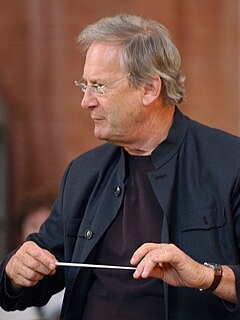 W
WSir John Eliot Gardiner, CBE HonFBA is an English conductor, particularly known for his performances of the works of Johann Sebastian Bach, Wolfgang Amadeus Mozart, and of other 17th and 18th-century music.
 W
WViolet Gordon-Woodhouse was a British keyboard player. She specialised in the harpsichord and clavichord, and was influential in bringing both instruments back into fashion. She was the first person to record the harpsichord, and the first to broadcast harpsichord music.
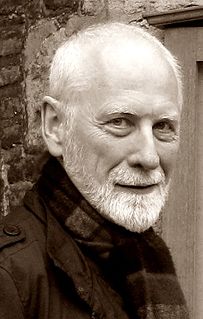 W
WChristopher Herrick is an English organist.
 W
WPaul Douglas Hillier is an English conductor, music director and baritone. He specializes in early music and contemporary art music, especially that by composers Steve Reich and Arvo Pärt. He studied at the Guildhall School of Music, beginning his professional career while a vicar-scholar at St Paul's Cathedral, London. His concert debut was in 1974 in London's Purcell Room.
 W
WAlfred James Hipkins FSA was an English musician, musicologist and musical antiquary.
 W
WChristopher Jarvis Haley Hogwood was an English conductor, harpsichordist, writer, and musicologist. Founder of the early music ensemble the Academy of Ancient Music, he was an authority on historically informed performance and a leading figure in the early music revival of the late 20th century.
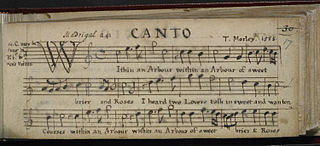 W
WJohn Immyns was an English attorney, lutenist, and prolific copyist.
 W
WDame Carolyn Emma Kirkby, is an English soprano and early music specialist. She has sung on over 100 recordings.
 W
WGrant Llewellyn is a Welsh conductor and Music Director of the North Carolina Symphony and Orchestre Symphonique de Bretagne.
 W
WTim Mead is an English countertenor.
 W
WDavitt Moroney is a British-born and educated musicologist, harpsichordist and organist. His parents were of Irish and Italian extraction – his father was an executive with the Anglo-Dutch Unilever conglomerate. From 1968 onward, he undertook his undergraduate and graduate studies in musicology at King's College London, the faculty of which was headed by Thurston Dart, a great influence on the world of early music. Moroney later pursued advanced harpsichord studies with Kenneth Gilbert and Gustav Leonhardt. Moroney also holds performance and teaching diplomas (1974) from the Royal Academy of Music and the Royal College of Music. After earning his PhD in musicology from the University of California, Berkeley in 1980 with a thesis on the music of Thomas Tallis and William Byrd, he returned to Paris and worked mainly as a freelance performer until returning to the United States to serve on the faculty at UC Berkeley in 2001.
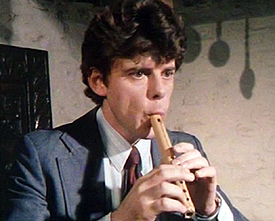 W
WDavid John Munrow was a British musician and early music historian.
 W
WSir Roger Arthur Carver Norrington is an English conductor. He is the son of Sir Arthur Norrington and his brother is Humphrey Thomas Norrington.
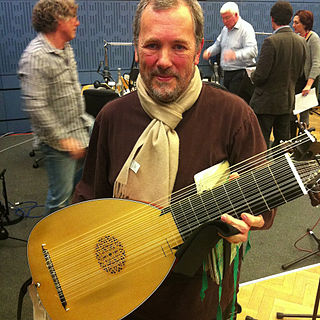 W
WNigel North is an English lutenist, musicologist, and pedagogue.
 W
WChristopher Page is a British expert on medieval music, instruments and performance practice, together with the social and musical history of the guitar in England from the sixteenth century to the nineteenth. He has written numerous books regarding medieval music. He is currently a Fellow of Sidney Sussex College, Cambridge, where he is an Emeritus Professor in the University.
 W
WAndrew Parrott is a British conductor, perhaps best known for his pioneering "historically informed performances" of pre-classical music. He conducts a wide range of repertoire, including contemporary music. He conducted the premiere of Judith Weir's A Night at the Chinese Opera. He has also recorded new music by other modern British composers, and by Vladimír Godár.
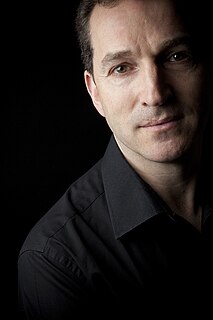 W
WBen Parry is a British musician, composer, conductor, singer, arranger and producer in both classical and light music fields. He is the co-director of London Voices, Assistant Director of Music at King's College, Cambridge, Artistic Director of the National Youth Choirs of Great Britain.
 W
WJulian Perkins is a British conductor and keyboard player. He is Founder Director of the early music ensemble Sounds Baroque and Artistic Director of Cambridge Handel Opera Company.
 W
WTrevor David Pinnock is a British harpsichordist and conductor.
 W
WJohn Potter is an English tenor and academic.
 W
WAnthony Rolfe Johnson was an English operatic tenor.
 W
WLucie Skeaping is a British singer, instrumentalist, broadcaster and writer. She was a founder of the early music group the City Waites and the pioneering klezmer band The Burning Bush. She presents BBC Radio 3's Early Music Show, a weekly programme dedicated to the early music repertoire.
 W
WJeffrey Skidmore OBE is the conductor and artistic director of Ex Cathedra, a choir and early music ensemble based in Birmingham in the West Midlands, England. An active participant in musical education and a pioneer in researching and performing neglected choral works of the 16th to 18th centuries, he has worked with leading musicologists to prepare new performing editions of French and Italian music. In particular, his recordings of French and Latin American Baroque music with Ex Cathedra have won wide acclaim.
 W
WMaria Jane Williams was a 19th-century Welsh musician and folklorist born at Aberpergwm House, Glynneath in Glamorgan, South Wales. She rescued many Welsh songs from obscurity, including Y Deryn Pur and Y Ferch o'r Sger.